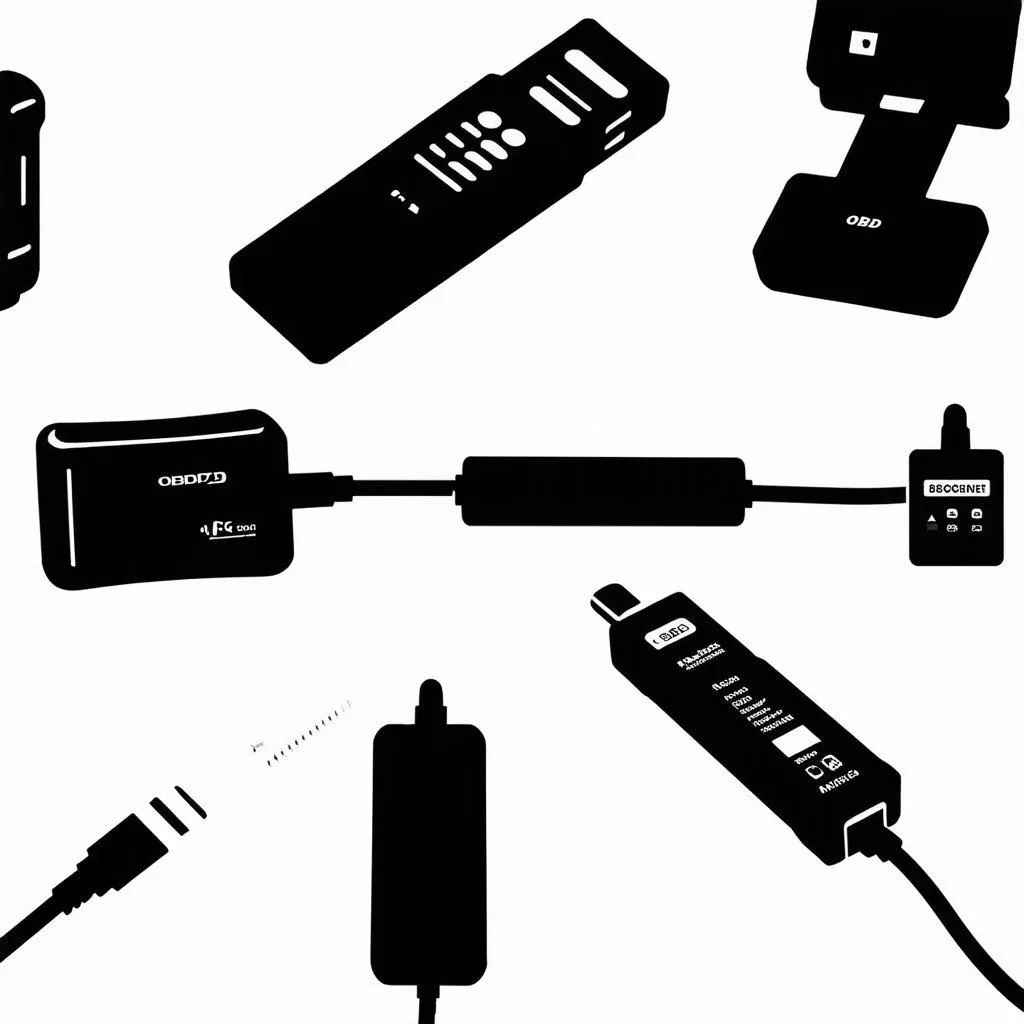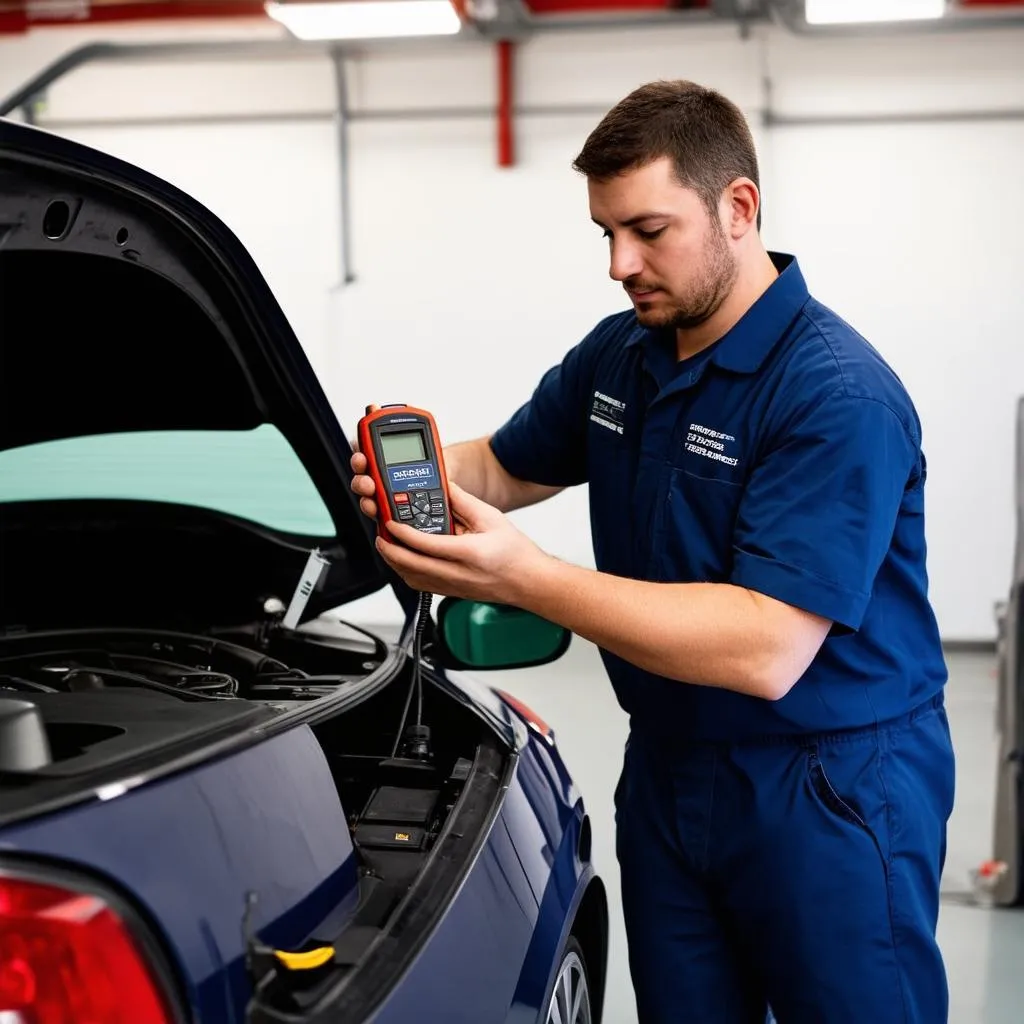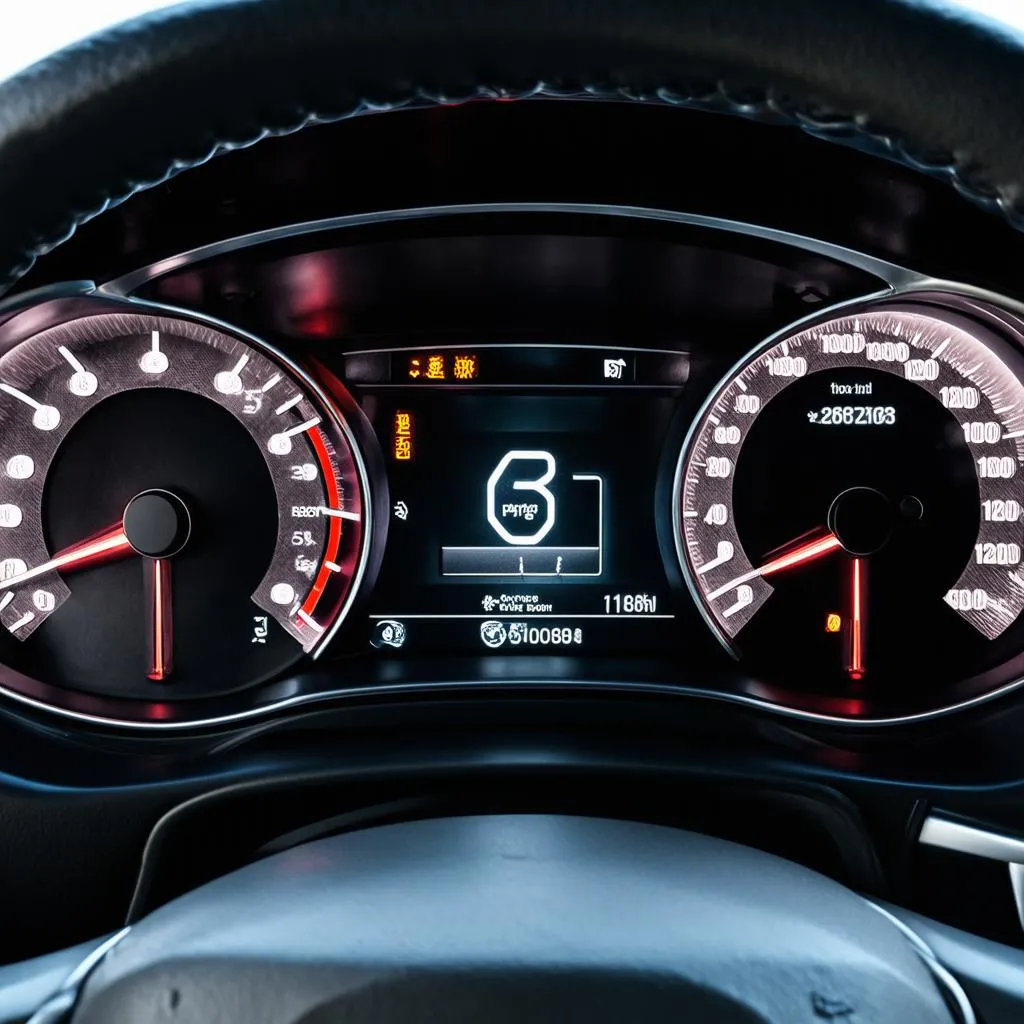“Check engine” light staring you down again? We’ve all been there. That little yellow beacon can feel like a mystery, leaving you wondering what’s happening beneath the hood. But what if you had a way to decode those flashing lights and understand your car’s whispers? Enter the OBD scanner – your personal mechanic in the palm of your hand.
What is an OBD Scanner and Why Should You Care?
Imagine this: you’re driving down the road, and suddenly, your car starts sputtering. You pull over, heart sinking, wondering what costly repair awaits. This time, though, you’re prepared. You pull out your trusty OBD scanner, plug it into your car’s OBD-II port (usually under the steering wheel), and within seconds, you have a diagnosis. No more guessing games, no more expensive trips to the mechanic for a simple fix.
OBD stands for On-Board Diagnostics, and these handy scanners act as a bridge between your car’s computer and your brain. They read the diagnostic trouble codes (DTCs) stored in your vehicle’s computer, translating those cryptic codes into plain English (or any language you prefer!).
Why is this a game-changer? Let’s break it down:
- Empowerment: You become your own car doctor, gaining the knowledge to make informed decisions about repairs.
- Cost Savings: Imagine catching a loose gas cap before it becomes a major engine issue. Obd Scanners can help you diagnose and potentially fix minor problems yourself.
- Peace of Mind: Knowing what’s happening with your car provides invaluable peace of mind, especially on long journeys.
Unveiling the Magic: How Obd Scanners Work
Think of your car’s computer system as a network of sensors constantly monitoring its vital signs. When something goes wrong, a trouble code is generated and stored in the car’s memory. This is where OBD scanners come in – they plug into the OBD-II port, acting as a decoder ring for these codes.
Different Strokes for Different Folks: Types of Obd Scanners
Just like cars, OBD scanners come in various shapes and sizes, each with a unique set of features:
- Basic Code Readers: These entry-level scanners provide basic DTC readings, ideal for DIY enthusiasts looking to diagnose simple issues.
- Mid-Range Scanners: Offer more advanced features like live data streaming, allowing you to monitor engine performance in real-time.
- Professional-Grade Scanners: Packed with advanced functionalities like bi-directional control (allowing you to perform certain actions on your car’s system) and programming capabilities.
 Types of OBD Scanners
Types of OBD Scanners
Finding the Perfect Match: Choosing the Right OBD Scanner
With so many options available, finding the right OBD scanner can seem daunting. Consider these factors before making your choice:
- Your Car’s Make and Model: Some scanners are specifically designed for certain car brands, offering enhanced compatibility and functionality. For example, if you own a European car like a Skoda, you might consider a dealer-level OBD scanner specifically designed for European vehicles, like those mentioned on our OBD Skoda page.
- Your Technical Expertise: If you’re just starting, a basic code reader might suffice. For more experienced users, a mid-range or professional-grade scanner might be a better fit.
- Your Budget: OBD scanners range from affordable to quite pricey. Determine your budget and choose a scanner that offers the best value for your needs.
 Mechanic Using OBD Scanner
Mechanic Using OBD Scanner
Beyond Diagnostics: The Hidden Potential of Obd Scanners
OBD scanners are not just about troubleshooting; they offer a plethora of other functionalities:
- Enhanced Performance Monitoring: Track parameters like engine speed, coolant temperature, and fuel efficiency in real-time.
- DIY Maintenance: Resetting oil light, reading and clearing airbag codes are some tasks you can potentially perform yourself.
- Increased Resale Value: A well-maintained car, supported by OBD scanner records, can boost its resale value.
The Feng Shui of Car Maintenance
In many cultures, cars are seen as more than just machines; they represent freedom, progress, and even an extension of ourselves. Maintaining your car, like maintaining your living space, can be seen as a way to ensure smooth journeys and invite positive energy. Just as decluttering your home can improve the flow of positive chi, regularly checking your car’s health with an OBD scanner can be viewed as a way to keep its energy flowing freely.
FAQs: Your Burning Questions Answered
Q: Do I need an OBD scanner if my car is new?
A: While modern cars are built to last, even new vehicles can experience glitches. Having an OBD scanner gives you an early warning system, allowing you to address minor issues before they escalate.
Q: Are OBD scanners universal?
A: All cars manufactured after 1996 in the US are required to have a standardized OBD-II port. However, some scanners are designed to work best with specific makes and models.
Q: Can I use an OBD scanner on my truck?
A: Absolutely! OBD scanners can be used on a wide range of vehicles, including trucks. You can find more information about OBD scanners for trucks on our Volvo Truck OBD Scanner page.
Ready to Take the Wheel?
Investing in an OBD scanner is an investment in your car’s health and your peace of mind. Remember, knowledge is power, and understanding your car’s language can save you time, money, and unnecessary stress in the long run.
Need help choosing the right OBD scanner or deciphering those cryptic codes? Contact our team of automotive experts on WhatsApp at +84767531508. We’re here to help you navigate the world of car diagnostics and keep your vehicle running smoothly for miles to come!
 Car Dashboard Check Engine Light
Car Dashboard Check Engine Light
Interested in learning more about specific OBD scanners? Check out these articles: